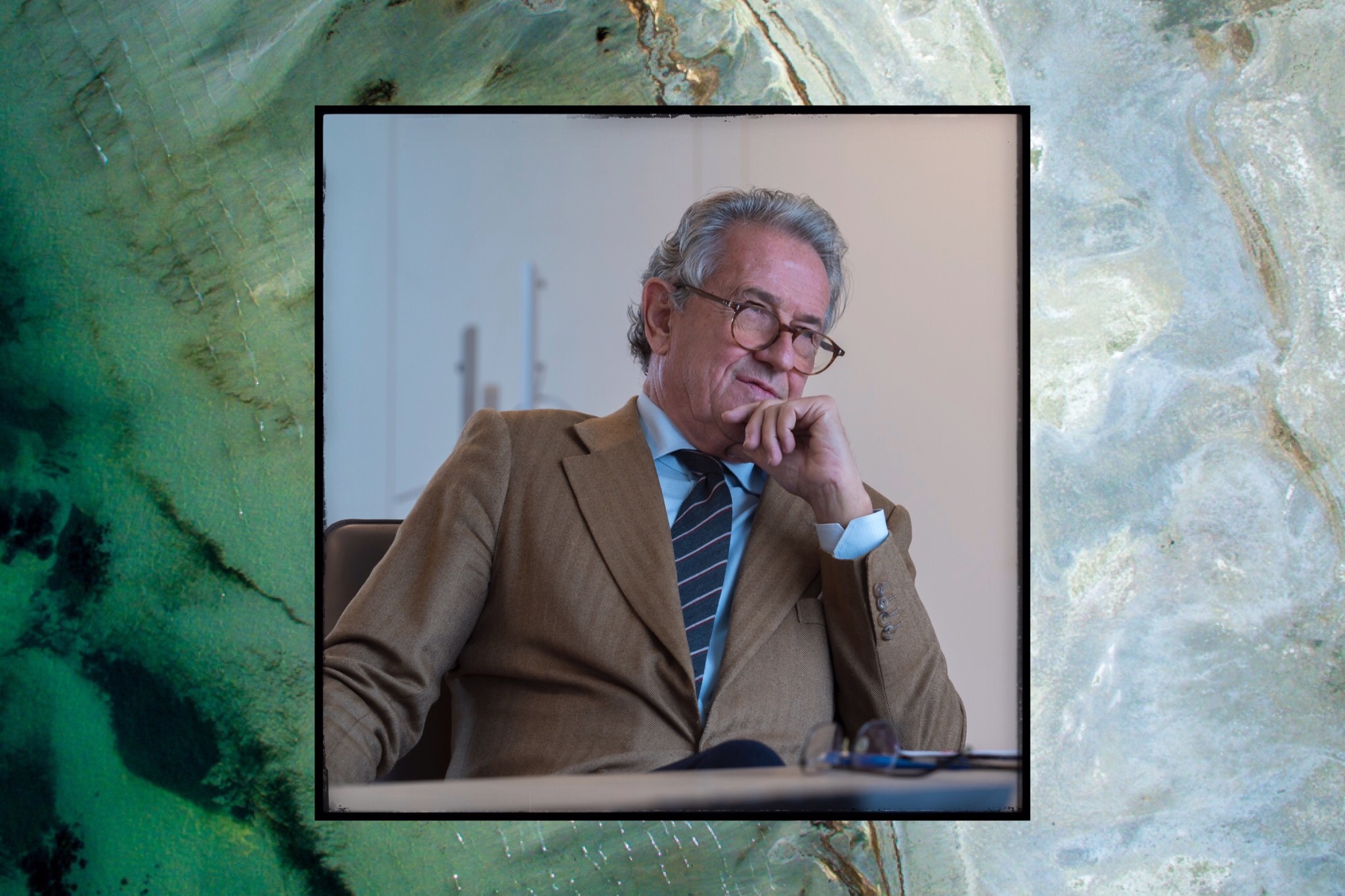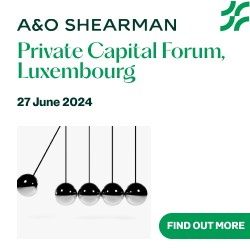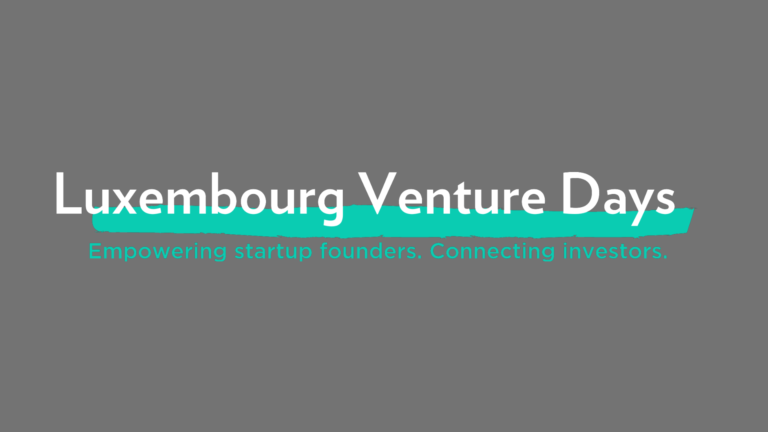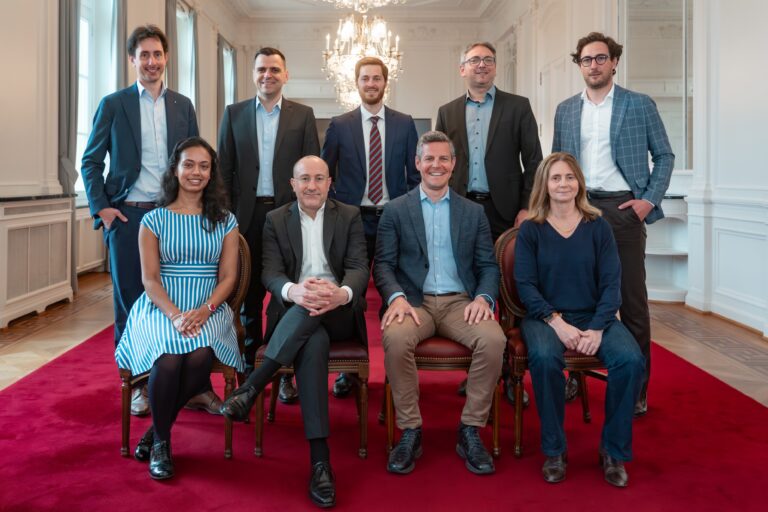THE PRESIDENT OF LPEA, CLAUS MANSFELDT, SPOKE WITH FRANÇOIS TESCH, EXECUTIVE CHAIRMAN OF LUXEMPART S.A. ABOUT FOYER ASSURANCE, THE NEW STYLE OF GOVERNANCE AND THE STRATEGY DIVERSIFICATION OF LUXEMPART.
INTERVIEW by Claus Mansfeldt, President of LPEA
Claus Mansfeldt (CM): Henry Kravis or Warren Buffett?
François Tesch (FT): Very tough question (with a smile). I admire both. I started working for an American company in the US, where I spent 4 years, and then 2 years in Paris in the company’s headquarters in Europe. The American culture certainly influenced me and my future career. At that time, in the late 70s, KKR was created. They actually initiated the Private Equity (PE) movement with the acquisition of Nabisco. Nabisco was the biggest acquisition by a financial institution at the time and it also created an occasion to write a famous book which we all know “Barbarians at the gate” by Bryan Burrough. Nobody really believed in the success of KKR and of that acquisition at the time. But it certainly initiated the birth of the PE world. Then I joined the insurance business, which was family controlled and spent a big part of my professional life as CEO. It was only in 1992 that I had the opportunity to diversify my career with the acquisition of BIL – Participations, i.e. Luxempart, and that was also thanks to a person I’ve met and have a great respect for – Gaston Schwertzer, who was my partner for Luxempart for a long time, before working very closely with his son Jacquot. Luxempart owes them both a great deal.
Going back to Warren Buffett, the long-term aspect of the business, is something that I like very much. But I started working for a company with a very industrial experience, which probably gave me a different an gle of approach. I had a chance to meet Henry Kravis
once, and I was deeply impressed by his knowledge, his personality and his simple and precise words used during the discussion. I will always remember him saying: “François, we made many mistakes, but we adapted very quickly”. I wouldn’t like to compare myself to those big figures of the investment world, but as a young person of course you look around and you try to find people, who could positively influence you. And I admired them both, that’s for sure.
IF YOU COMBINE THE FAMILY CULTURE WITH ITS LONG-TERM AND SOLID SHAREHOLDER
APPROACH AND THE GOVERNANCE OF A LISTED COMPANY, YOU HAVE VERY STRONG
PILLARS FOR DEVELOPING YOUR BUSINESS.
François Tesch
CM: Would it be true to say that Foyer is your family business?
FT: Foyer is almost 100 years in the family. Without Foyer, I wouldn’t be sitting here. But the diversification with Luxempart was an opportunity, which was not foreseen at all. When we decided on the strategy with Foyer a long time ago, we saw that being a small insurance entity in a big country like France or Belgium, where we were operating at the time, was a dangerous game, because at the time there was a consolidation effect driven by AXA, who was buying all the small players. I saw very well that we didn’t have the financial means and the right size to resist the big players in those markets. Market share was
very important. So, we decided to sell France and Belgium and keep only Luxembourg, where we are a major player. That was a very important strategic step, because by selling Foyer Belgium we got cash and we had to find a reinvestment. The opportunity came up, just thereafter, to invest in BIL-Participations. And that was the beginning of the story of Luxempart. It was an opportunistic move. It involved some courage and faith, and Gaston Schwertzer with his enthusiasm and André Elvinger with his skilful advice, helped a lot.
We just met and in 10 minutes we decided without any due diligence to just go for it. Sometimes you have to follow your gut feeling. So, Foyer used the money from Foyer Belgium to acquire with partners BIL-Participations which quickly became Luxempart. As an insurance company Foyer had significant investments in Luxembourgish companies, like Cegedel and the local banks like BGL, BIL, KBL. I thought that these holdings, could be better managed by a specific team so the idea was that we would sell these holdings to Luxempart, where we would then play a more active role. It was also better for an insurance company to have more liquid assets in case of a crisis. So, in a way, the money to acquire BIL-Participations came from insurance but thereafter we managed the two entitie Luxempart and Foyer as separate entities and with separate investment strategies.
CM: That leads us to governance, which is one of your focus areas and the choice of listing.
FT: The experience with listing came first with the acquisition of BIL-Participations, and with Foyer in 2000. There I saw the benefits of the market in terms of governance. We needed to do a very precise and transparent reporting. We had to have audit and remuneration committees, change the composition of our boards for more independent board members, review all aspects of governance to be marketable. Family business is a little bit inward-minded and to be on the market you have to be open, look at yourself from the outside. However, if you combine the family culture with its long-term and solid shareholder approach and the governance of a listed company, you have very strong pillars for developing your business. We also insist to say that Luxempart is not a fund, but really an investment company, evergreen, with a long-term strategy, committed to develop and improve businesses, and that makes us different from the pure PE world.
CM: Indeed, and you strengthened your pillars starting with management. Are two CEOs better than one?
FT: There is a difference between an operational company like Foyer with 700 people, a pyramid structure and that has to have a very clear decision process. I
always tried to attract the best people and to give them responsibility, the right to take decisions. This allowed me to do things I like better, to start new things. The most important for a manager is to make himself unnecessary and to find someone better than himself to go one step further. That is my philosophical statement. Luxempart is only around 20 people, even though we manage over EUR 1,5 Billion. What is important for Luxempart is to have a very good team. What is even more important is to have very robust discussions. It is not that unusual for investment companies to find partners who are equal, who have their strength, who can complement each other. I always had discussions with Gaston and Jacquot and we always took our decisions in a collegial manner. It is not important to be able to say “I am the boss”, the important thing is the decision which comes out. Olaf and John share these views with me. Good teams cannot have super-egos, it can be very dangerous. The standards of management we have are very high. Not everyone from a family can say “I want to join the company, because I am a shareholder”, that is not enough. We have a very strict family governance.
CM: You started recently a stock option program. You think that is important for the alignment of interests? What are your milestones?
FT: Over 25 years we have produced an average return of over 15%, which is good for this period of time. We are aiming to pursue this, and it is certainly a challenge. To attract the best possible investment managers to Luxembourg, and to be competitive with places like Paris, London or Frankfurt, it is of paramount importance to be able to offer competitive remuneration schemes which align the interests of managers with shareholders. We had this opportunity in the past and we hope that we will be able in Luxembourg to offer attractive remuneration packages also in the future. John and Olaf are following the same investment strategy of direct investments and investments into funds but with more focus and international ambition from Luxembourg. We want to remain agile and adapt in a very fast changing world. We aim for our shareholders a return on average between 12 and 15% per year with a diversified risk profile.
I SAW THE BENEFITS OF THE [PUBLIC] MARKET IN TERMS OF GOVERNANCE.
WE NEEDED TO DO A VERY PRECISE AND TRANSPARENT REPORTING.
François Tesch
CM: At the LPEA we aim to give investment access to this asset class for HNWI or even retail. Should your asset management business start giving access to PE funds… or is the best choice to buy Luxempart shares?
FT: We give access to our investments through Luxempart listed on the stock market. By investing in Luxempart’ shares, you invest into quality investments
like Foyer S.A., which is not listed anymore but which still represents 25% of the assets of Luxempart. You also invest indirectly into selected funds which have a proven track record and promising prospects, and which are difficult to access for private individuals. On top as a listed company, Luxempart offers better
liquidity than funds.
CM: Looking at your crystal ball for 2021. Do you think you will need more resilience?
FT: I think we learnt from the first wave of the COVID-19 crisis and that the economy will not come to a complete stop in this second wave. However, we do expect a long “winter” with certainly an impact on 2021. Stock markets, even though volatile, behave so far in a rather resilient way. This is also probably because cash and bonds with negative or low interest rates are not attractive. The shares always remain the best pie, even if we get inflation. The lack of choice keeps markets high. And as interest rates should remain low, I believe that we will see very promising returns in PE in the future.




